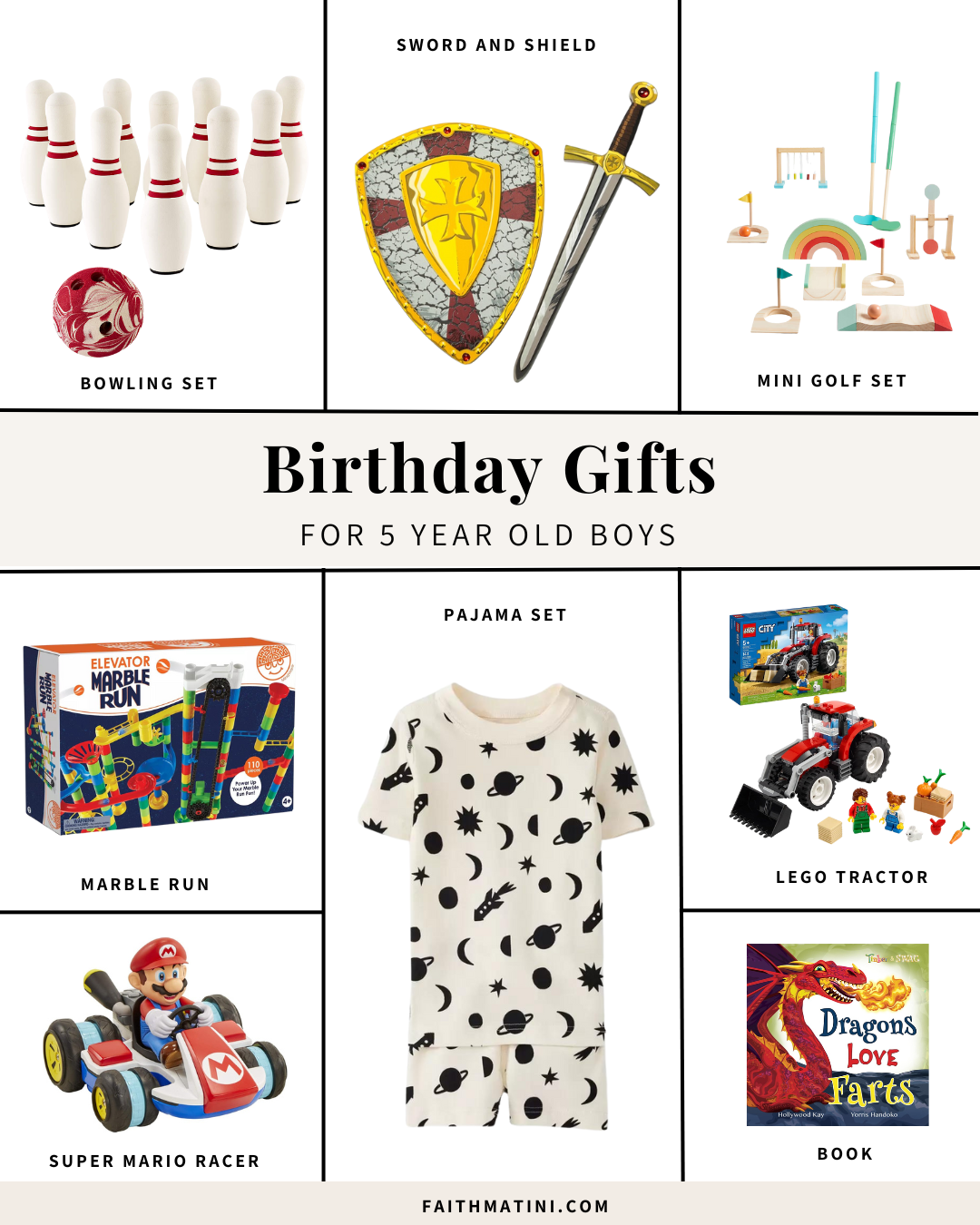In a world brimming with gadgets and toys, it’s easy for our children’s closets and shelves to overflow with physical gifts that capture their attention only momentarily. As parents, we often find ourselves searching for meaningful presents that offer more than just fleeting excitement. This is where the magic of experience gifts comes into play, offering a memorable and enriching alternative to the traditional toy box.
Imagine the sparkle in your child’s eyes not from unwrapping another action figure or doll, but from experiencing the thrill of a live theater show, the wonder of exploring a science museum, or the joy of creating their first ceramic masterpiece in an art class. Experience gifts are not just about doing something different; they are about sowing the seeds of curiosity, passion, and lifelong memories.
In this post, we delve into the world of experience gifts for kids, exploring options that cater to every interest – from the young adventurer eager to explore the great outdoors to the little chef ready to whisk up a storm in the kitchen. These gifts go beyond the fleeting thrill of a new toy; they are gateways to new skills, knowledge, and cherished moments.
Experience Gifts For the Young Adventurer

1. Nature Exploration Trip: Organize a day of hiking to explore local trails, plan a camping weekend to teach survival skills, or enjoy a simple nature walk to observe local flora and fauna. These activities not only instill a love for the environment but also teach respect for nature and the importance of conservation.
2. Zoo or Aquarium Visit: A visit to a zoo or aquarium can be a fantastic educational experience. It allows kids to see a variety of animals up close and learn about their habitats, diets, and the conservation efforts being made to protect them. Some zoos and aquariums also offer behind-the-scenes tours or animal encounters for a more interactive experience.
3. Star Gazing Night: Arrange a star-gazing evening, either in your backyard or at a local observatory. This experience can be both magical and educational, teaching children about constellations, planets, and the vastness of the universe. Many observatories and local astronomy clubs offer special events for families.
4. Geocaching Adventure: Geocaching is a real-world, outdoor treasure hunting game using GPS-enabled devices. Participants navigate to a specific set of GPS coordinates and then attempt to find the geocache (container) hidden at that location. It’s a fun way to explore the outdoors and encourages problem-solving and navigation skills.
5. Botanical Garden Exploration: Visiting a botanical garden can be a delightful way for kids to learn about different plants, flowers, and ecosystems. Many gardens have interactive sections for children, such as butterfly houses or sensory gardens, which allow for a hands-on learning experience.
6. Kayaking or Canoeing Trip: For water-loving families, a kayaking or canoeing trip can be an exhilarating adventure. This activity not only offers a unique perspective of nature but also teaches kids about water safety and the importance of preserving our waterways.
7. Fossil Hunting or Rockhounding: Many areas have local spots where you can go fossil hunting or rockhounding. This is an excellent way for children to learn about geology, paleontology, and the history of the Earth. It’s also a fun way to encourage a sense of discovery and exploration.
Experience Gifts For the Budding Artist

1. Art Classes: Enroll your child in art classes focusing on their preferred medium, be it painting, pottery, or digital art. These classes not only enhance their creativity but also help in developing fine motor skills, patience, and the ability to follow instructions.
2. Museum Tours: Many museums offer child-friendly tours that make art and history more accessible and enjoyable. Look for interactive exhibits or special events geared towards children, which often include hands-on activities or scavenger hunts.
3. Photography Workshops: Introduce your child to the world of photography. Workshops can teach them the basics of composition, lighting, and storytelling through a lens. This can also be a great way to explore nature or urban settings from a new perspective.
4. Crafting Workshops: Look for local crafting classes or workshops that offer different types of craft activities like scrapbooking, making jewelry, or even basic woodworking. These workshops not only spark creativity but also teach valuable skills like precision and design.
5. Street Art Tours: Many cities have vibrant street art scenes. Taking a guided tour can be an eye-opening experience for young artists, showing them a different, often more contemporary and expressive, side of art. It also offers an opportunity to discuss public art and its impact on communities.
6. Animation or Filmmaking Classes: For kids interested in digital arts, classes in animation or filmmaking can be extremely engaging. They will learn about storyboarding, character design, and maybe even get a chance to create their own short films.
7. Art Supply Kit as a Gift: Curate a special art supply kit tailored to your child’s interests. This could include high-quality paints, sketchbooks, sculpting clay, or specialized tools for digital art. Accompany this gift with a book of art techniques or the biography of a famous artist to inspire them.

CHRISTMAS
Holiday Gift Guide: The Best Gifts For Toddler Boys
‘Tis the season to be merry, and if you’re anything like me, you’re gearing up for a festive season filled with tiny footsteps, sticky fingers, and the never-ending…
Experience Gifts For the Little Performer

1. Theater Tickets: Attending a live performance, be it a play, musical, or puppet show, can be a magical experience, exposing children to the diverse world of theater and storytelling.
2. Dance or Music Lessons: Enrolling your child in dance or music lessons can foster their artistic talents while also improving their physical fitness, coordination, and discipline.
3. Circus Skills Workshop: Workshops that teach circus skills like juggling, acrobatics, or clowning can be incredibly fun and unique. These skills promote physical fitness, coordination, and confidence.
4. Voice Lessons: If your child enjoys singing, consider voice lessons. This can improve their vocal technique and musical ear, and it’s a wonderful outlet for self-expression and creativity.
5. Drama Camps: Many communities offer drama camps during school breaks. These camps immerse children in the world of acting, scriptwriting, and stage management, providing a comprehensive performing arts experience.
6. Film Making Course: For kids interested in movies, a film making course can be an exciting way to learn about storytelling, directing, and acting for the camera. This can foster a deep appreciation for the art of cinema and storytelling.
7. Magic Classes: Enroll your child in a magic class to learn the art of illusion. Magic classes can improve manual dexterity, presentation skills, and creativity, all while having a lot of fun.
Experience Gifts For the Curious Learner

1. Science Centers: Science museums with interactive exhibits make learning fun and engaging. These centers often feature hands-on activities that explain scientific concepts in a child-friendly manner.
2. Bookstore Events: Many bookstores host children’s reading hours, storytelling sessions, and author events. These gatherings are perfect for young bookworms, fostering a love for reading and imagination.
3. Historical Site Tours: Visiting historical sites, like old forts, battlegrounds, or historic homes, can bring history to life. Many of these sites offer child-friendly tours and interactive exhibits that make learning about the past engaging and fun.
4. Astronomy Nights: Participate in local astronomy club events or visit a planetarium. Watching the stars, learning about constellations, and understanding celestial events can spark a lifelong interest in space and science.
5. Robotics Workshops: Look for local robotics clubs or workshops where children can learn to build and program their own robots. This combines creativity with basic engineering and computer programming skills.
6. Language Learning Classes: Enrolling your child in a foreign language class can be a wonderful way to expand their horizons, improve cognitive skills, and prepare them for a globalized world.
7. DIY Science Experiments: Plan a day to conduct simple science experiments at home. This can involve anything from making a homemade volcano to experimenting with non-Newtonian fluids like oobleck. It’s a fun and interactive way to learn scientific principles.
Experience Gifts For the Active Child

1. Sports Clinics: Local sports teams or community centers often host clinics where kids can learn new sports skills or improve existing ones. This is not just about physical fitness; it’s also about learning teamwork and sportsmanship.
2. Adventure Parks: Visit places with obstacle courses, climbing walls, or trampoline parks. These venues are great for physical activity, challenge, and confidence building, and they often cater to various age groups and skill levels.
3. Outdoor Treasure Hunts: Organize or participate in a treasure hunt in a local park or community area. This encourages exploration, problem-solving, and physical activity as children run, search, and discover.
4. Rock Climbing Classes: Enroll your child in indoor or outdoor rock climbing classes. It’s a great way for them to build strength, coordination, and confidence while learning about safety and perseverance.
5. Biking Trails: Explore local biking trails or parks with your child. Biking is a wonderful way to exercise and enjoy the outdoors, and it can be tailored to different skill levels.
6. Swimming Lessons or Water Parks: Swimming is a fundamental life skill and a great form of exercise. Lessons can help children learn to swim, while a day at a water park is all about fun and splashing around.
7. Skateboarding Lessons: Skateboarding can be an exciting and challenging activity for kids. It helps develop balance, coordination, and determination. Many communities have skate parks where children can learn and practice safely.
For the Food Enthusiast

1. Cooking Classes: Cooking or baking classes for kids can teach them basic culinary skills, foster independence, and encourage a healthy relationship with food. Many cooking schools offer classes tailored for young chefs.
2. Cultural Food Tours: Explore different cuisines through guided food tours. This can be an educational and fun way to learn about different cultures and their culinary traditions.
3. Farm to Table Experiences: Visits to local farms can be enlightening for children. They can learn about where food comes from, how it’s grown, and the importance of sustainable practices. Some farms also offer cooking classes using fresh produce picked by the participants, providing a full farm-to-table experience.
4. International Cooking Workshops: Enroll your child in workshops that focus on international cuisines. These classes can teach them about diverse cultures through food, introducing them to a world of flavors and cooking techniques from different countries.
5. Junior Food Critic Adventures: Create a fun challenge where your child can be a “junior food critic” for a day. Visit different restaurants or food stalls and encourage them to write or draw about their culinary experiences, focusing on taste, presentation, and their overall dining experience.
6. Food Science Experiments: Engage them in food science experiments at home or through workshops. Simple experiments like making homemade ice cream, understanding fermentation with homemade pickles, or the science of baking can be both fun and educational.
7. Youth Cooking Competitions: Look for local or online cooking competitions designed for children. These competitions can be a great way for kids to challenge themselves, learn new skills, and showcase their culinary talents. It’s also a great way to boost their confidence and encourage a healthy competitive spirit.
RELATED: Holiday Gift Guide: The Best Gifts For Toddler Boys
Wrapping Up…
As we wrap up this journey through the world of experience gifts for kids, it’s clear that the most meaningful gifts we can offer aren’t always found on store shelves. They’re woven into the fabric of real-world experiences that enrich, educate, and inspire our children. From the laughter and joy of a day at a theme park to the quiet concentration of an art class, these experiences provide a canvas for our children to paint their memories, dreams, and discoveries.
By choosing experience gifts, we step beyond the conventional, nurturing our children’s passions, sparking their curiosity, and opening doors to new worlds. These gifts are not just about the experiences themselves; they’re about the moments we share, the conversations they ignite, and the bonds they strengthen. Whether it’s through a shared adventure in nature, a collaborative cooking session, or a stimulating visit to a museum, these experiences become treasured chapters in our children’s life stories.
So, the next time a birthday, holiday, or special occasion rolls around, let’s remember that the best gifts don’t always come wrapped in a box. They come in the form of time spent together, skills learned, and memories made – gifts that truly stand the test of time. Here’s to giving our children the world, one experience at a time.

40+ Exciting Experience Gifts for Kids

Dec 10, 2023
More Posts You'll Love
30 Day Self-Care Challenge
free download!
It's time to prioritize you, mama! Dive into our 30-Day Self-Care Challenge, a tailor-made journey to fit your hectic life.
@ FAITH MATINI 2021 All Rights Reserved
TERMS + PRIVACY
Faith Matini is a participant in the Amazon Services LLC Associates Program, an affiliate advertising program designed to provide a means for sites to earn advertising fees by advertising and linking to Amazon.com.





